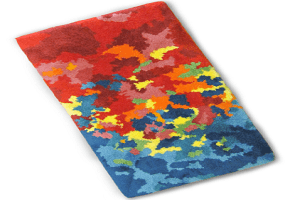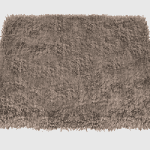Remember, it’s okay to feel your emotions, but it’s important to find healthy ways to cope with them. This may include therapy, medication-assisted treatment, or holistic approaches such as yoga and meditation. Before going further, we should recognize that Alcoholics Anonymous does work for some people—and there’s nothing wrong with choosing that path if it’s a good fit. While the program’s anonymous nature makes success rates hard to track, an independent 2020 study confirmed that AA is genuinely effective in plenty of cases. It can even reduce pain, anxiety, and alcohol cravings, according to a 2018 review of mindfulness research as it relates to AUD (8). Researchers found that CBT has different effectiveness rates for different substances.
Group Therapy
It involves strategies to address the effects of addiction, effective relapse prevention strategies, and exploring sober communities. For some, continuing to manage their mental health and spiritual healing following addiction treatment can be exceptionally difficult. Women for Sobriety also offers online meetings, phone support, and a forum where members can share their experiences http://котокафемира.рф/204452717-kotik-ploho-est-tolko-50.php and support each other. Staying sober is a challenging and complex journey that requires a lot of effort, commitment, and support. While Alcoholics Anonymous (AA) has been the traditional go-to solution for people struggling with addiction, it is not the only path to Sobriety. Our holistic approach supports your physical, mental, and spiritual health through a range of evidence-based treatment modalities.
Recognize Relapse Warning Signs
Will quitting drinking solve all of your problems, in health and in life? If that’s where you’re setting your expectations, you might feel like you gave up something you loved (getting really drunk) for no good reason, even when that’s objectively not true. One way to combat that feeling, Dr. Koob says, is to check in with yourself after a few months of sobriety to take stock of the benefits you’re reaping. Words can lift your spirits and make you feel happier throughout the day.
How to Stay Sober Without AA

Instead, genuine sober transformation involves changing lifestyles. Eating a healthy diet and exercising regularly can also help you stay sober. Avoiding sugary and processed foods can help prevent mood swings and cravings. Exercise can also be a great way to reduce stress and improve your overall health.
- Suboxone (buprenorphine/naloxone) is indicated for the treatment of opioid dependence in adults.
- When you drink alcohol, your brain releases endorphins, which are the body’s natural “feel-good” chemicals.
- I learned effective practices that will make my recovery journey a lifetime goal.
- By joining local sober meetups and social events, you can connect with others in recovery or with similar interests, creating a supportive network that fosters sobriety.

This abstinence-based program focuses on providing positive social reinforcement and self-direction, allowing you to reach your goals and establish a sober lifestyle. This support group offers a welcoming community and a comprehensive approach to addiction recovery, incorporating mindfulness and meditation techniques to help you cope with other unexpected life events. To learn more about Refuge Recovery and access their wealth of resources, visit their website, blog, and online meetings, or explore their worldwide centers. Framing sobriety as a temporary challenge versus a permanent lifestyle change can make it easier to stay sober for the long haul.
- WFS provides a gender-specific support system for encouragement and growth for women in recovery.
- The continued stresses of navigating urges and cravings can be some of the hardest challenges for those who are newly sober.
- I worked with a sponsor and did the Steps, which gave me tons of invaluable insight into myself and my experience.
- Other side effects may include headaches, nausea, vomiting, constipation, insomnia, pain, increased sweating, sleepiness, dizziness, coordination problems, physical dependence or abuse, and liver problems.
- Additionally, some people may find AA’s group dynamics or principles too rigid or dogmatic.
- If you think you can stick with it, creating a tapering schedule and gradually reducing how much you drink is usually the best approach.
Can I combine AA with alternative approaches?
Old photos may help people remember how far they have come and given them the courage to continue down their path of sobriety. Have you thought about joining AA, but do not have transportation to travel to meetings? Regardless of the difference in our needs, the most important thing is that we just don’t drink. Your sobriety is your own, and how you do it is entirely up to you. The fundamental belief of Alcoholics Anonymous, which is that we shouldn’t drink alcohol 100% of the time, works.
Talking with established friends and loved ones about setting new sober expectations can be a great way to use those who already support an individual to explore new possibilities in sobriety. Likewise, scheduling time for regular self-care, repairing relationships with loved ones, and taking on more responsibilities at home or a sober living facility can all help structure daily life. This can also help each person know what steps to take if they do experience a slip or release to refocus on their sober http://everbestnews.com/nedvizhimost/kvartal-krasnyx-fonarej-v-amsterdame.html efforts.

Take our quiz to see if you or a loved one needs substance use or mental health support.
For example, it is more effective at treating cocaine and opioid addictions than it is for tobacco and polydrug use (use of multiple substances). Check with your health insurance provider, ask friends for referrals, or browse therapy directories like Psychology Today and GoodTherapy. A 2014 study showed that “baseline motivation and self-efficacy” are key predictors of moderation success (5). In other words, those who are motivated and believe they can successfully moderate their drinking tend to have the best results. It’s understandable if you don’t want to share this part of your life with friends or family.

In communicating with people considering sobriety, preconceived notions about AA are the most common point of disinterest in making the change for themselves, and I understand why. The most common feedback I’ve received comes from people who want to be http://forallages.ru/games/?id=3689 sober with others but do not want to partake in Alcoholics Anonymous. Many social outlets may have close ties to alcohol or drug use, making finding new sober friends challenging.




 Round Rugs
Round Rugs  Wool Rugs
Wool Rugs  Vintage Rugs
Vintage Rugs 


 Carpet Tiles
Carpet Tiles  Carpet
Carpet 
 Embossed Rug
Embossed Rug  Plain Rug
Plain Rug 
 2.5'*4'
2.5'*4'  2'*3'
2'*3'  3'*5'
3'*5'  5*7.5
5*7.5 













 Artificial Grass
Artificial Grass  Mats
Mats 
 Soil
Soil  Fertilizer
Fertilizer  Pesticides
Pesticides